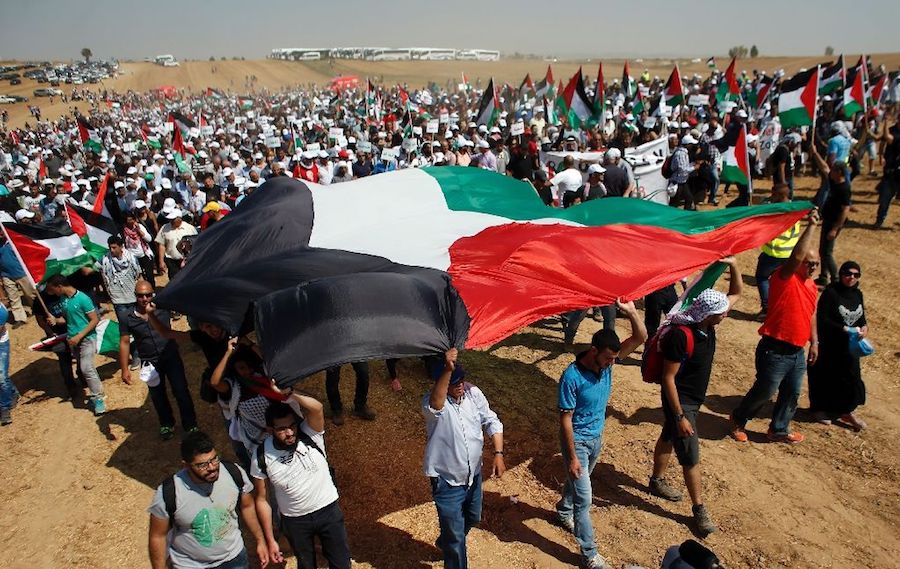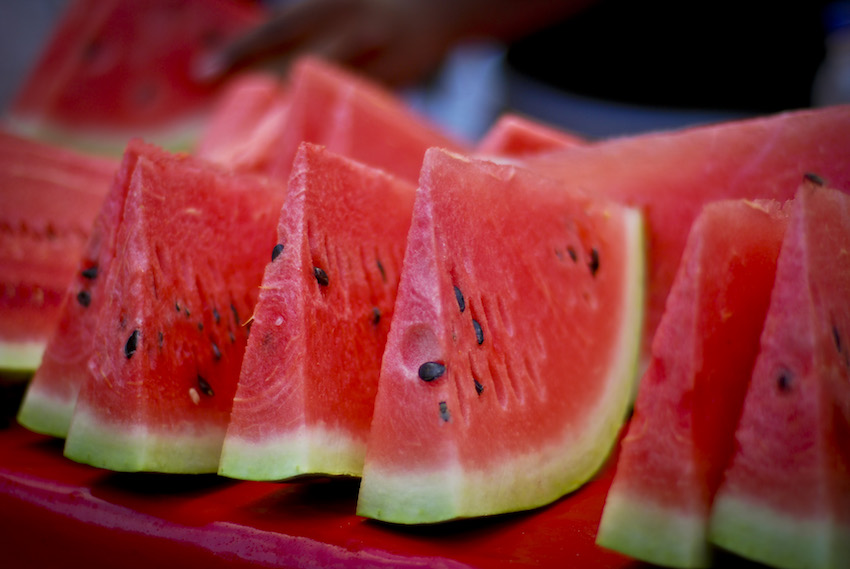
Sa'ed Atshan is a Palestinian Quaker and an assistant professor of Peace and Conflict Studies at Swarthmore College. He had been invited to speak to Friends Central Upper School students on February 3rd. But Sa’ed’s talk was cancelled. Craig Sellers, head of school, said in an email to the school community that Sa’ed speaking “raised concerns from some members of our community.” Students have protested in response to the cancellation of the talk. On Monday, the two teachers who invited Sa’ed were placed on indefinite administrative leave. The Quaker Palestine Israel Network has written an open letter about this situation. AFSC is deeply troubled that students at the school were not allowed to hear Sa’ed’s perspective and draw their own conclusions. We stand with Sa’ed and support the immediate reinstatement of the teachers who invited him. We expect a Friends school to teach its students to engage controversial topics by offering many perspectives, not by silencing those who may hold views that differ from the mainstream. We encourage you to share this blog post widely to give voice to Sa’ed, who was silenced by the school.
This article is transcribed from a webinar with Sa'ed and Steve Chase, Online Education Coordinator at Pendle Hill, during the "Exploring the Quaker Way" online spirituality course. The transcript has been edited for length and clarity. – Lucy Duncan
I remember being a kid and being in silence with the [Ramallah Friends School] community: students, faculty, staff, hundreds of people together, in silence, and all around us you could hear the bulldozers, you could hear the Apache helicopters, you could hear missiles bombing buildings from the Israeli military, you could hear funeral processions passing by, you could hear youth preparing demonstrations, to throw rocks at the soldiers... There's just madness, all around you, different kinds of noise. I think that the notion of silence and what it means to sit in silence is very different for different Quakers, depending on what kinds of noises you're juxtaposing the silence to. In a place like Palestine, that juxtaposition is really powerful.
I identify very strongly as Quaker. I feel a deep moral conviction that is divine in some ways and I feel that I am called to be someone who bears witness to this peace testimony and to this commitment to nonviolence and I want to be one of those people who says, "I will never inflict violence upon another human being even if that means losing my own life. I'm not prepared to take someone else's life away." So even if that's going to come at the cost of my own physical well-being, I’m prepared to then make that kind of sacrifice.
This is complicated with the discourse of self-defense. Oftentimes in the U.S. we hear that Israel has the right to self-defense, but we never hear that Palestinians have the right to self-defense. Palestinians should have the right to defend themselves from settlers taking over their ancestral lands, their homes being bulldozed, children being incarcerated, people having their olive groves destroyed, people witnessing unspeakable horror and systematic dispossession and displacement for 68 years now. Some Palestinians feel that Palestinians have the right, like any oppressed community, to use violence as a tool in order to liberate themselves from these chains of oppression.
We have these debates within our society, and like African-Americans, there was [the] Nation of Islam, Black Panthers, Martin Luther King, there were different visions for liberation and resistance. Many Palestinians are deeply committed to nonviolence. I don't feel like I’m in the minority. The overwhelming majority have never picked up weapons against another human being. But sometimes I am met with resistance where folks feel that I’m a bit too dogmatic.
Living in a violent world
I feel that unfortunately we live in such a violent world that there will always be people who are willing to pick up violence, and there will always be people who are readily engaged in those kinds of [violent] actions for the purpose of confronting a kind of evil. There needs to be a moral vanguard in every society of people who say “No, no matter what I’m going to remain pacifist.” In some ways, we hold the mirror to society and we are that constant reminder, that conscience, that if you're going to use violence you need to really think about its implications, the threshold needs to be very, very high and you need to think about what happens to your own spirit along the way. So I feel this calling ... to help support that Quaker witness, especially in a place that's mired in so much violence.
When you are at the receiving end of physical violence, when physical violence is omnipresent, when it's all around you, you understand its danger and you understand what it does to people's souls, and you also understand that once you unleash it, how difficult it is to contain it, to control it, and to manage it. We have this sense that somehow violence…you can create these hierarchies and people can take orders and you can contain violence, but anyone who experiences a context of violence, like Israel-Palestine, sees how it has the potential to spiral out of control.
And the violence that you enact against the "other” can come back to you. We see that in both Israeli and Palestinian societies, with the intense militarization of Israeli society and forced conscription of Jewish men for three years and Jewish women for two years at the age of 18. We see high rates of domestic violence in Israeli households. Within Palestinian society, we're seeing how the structural and physical violence from outside of the home is creeping into the home and exacerbating the rates of domestic violence.

I find violence to be incredibly dangerous. I find it to be impossible to contain. And I find that it cannibalizes communities and I find that it chips away at people's souls. That's why I think adhering to nonviolence is so important, and why for Palestinian Quakers, often without a doubt, there's a cognizance of why that's so essential.
Intersecting identities
I think that my gay identity and Quaker identity intersect as well and this connects to the pacifism and to the commitment to nonviolence. I was not a masculine boy, not a very macho boy in a very macho society in which there's toxic masculinity. I was the kid who threw the ball to the other team when we played soccer because I didn't want to have people rushing toward me. I was the kid who never picked up a stone even though that's a rite of passage, you pick up stones, it’s a rite of empowerment, and you throw it against the tanks and the military. I never picked one up, I never once felt that desire. I was always that kid who was into arts and theater.
I think that my Quaker identity and my Quaker faith really helps me reconcile all these different parts of my identity. I feel that I can be someone who doesn't want to release more toxic, aggressive energy into the world since there's so much of that already. I feel like my Quakerism helps me resist the temptation sometimes when I feel like my patience is being tested and I find myself getting angry. I feel like my Quaker faith, Quaker meeting for worship, being part of Quaker communities, helps me stay grounded and spiritually centered.
On resistance to oppression
As soon as hatred takes over our hearts, I think then the systems of oppression have prevailed. I think the colonizer, once they've colonized your heart and your spirit, that whole project of oppression has prevailed. I think what keeps me going is that despite these systems of oppression, that I am the master of my own soul, of my own spirit and that no one can take that away from me and this is something that I cherish and that I hold on to.

During the first Intifada Palestinian uprising, it was actually illegal to fly the Palestinian flag. The Israeli army said it's completely illegal. So my grandmother who is a painter, she said, “You know what? I'm going to paint a watermelon, it's green, red, black, the colors of the Palestinian flag.” So she painted this beautiful watermelon. And then she displayed it prominently in our living room. And I remember once the soldiers raided the house and they said "What is that?" and they were so angry and they took it down and started stepping on it with their boots and my grandmother just smiled, this very innocent smile, and said, "Oh, it's just a watermelon. I didn't know." And all of us we were afraid because the soldiers had guns and everything, but she looked at us and she winked at all of us. And she had this smile which was so mischievous.
But it just empowered us from such a young age which is to say, Yes, they have this quantitative power over us, this military power over us, but they don't have control over that moment, us smiling. They can't take that away from us, that moment, this insider resistance to the occupation that only we understand within the family, but that helps us sustain our spirits and helps us sustain our cohesion as a family, and it helps us overcome these unspeakable horrors. That is a message that I try to hold on to as well.
Related content
A hurricane of the Spirit to end the occupation of Palestine by Lucy Duncan
A Quaker call to action on Israel-Palestine